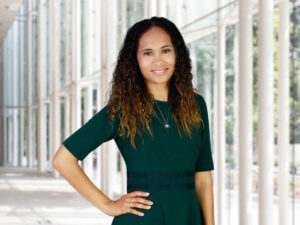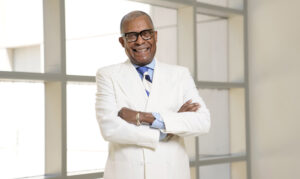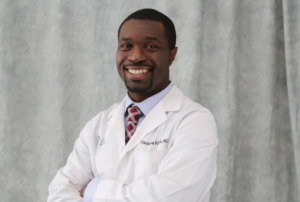Black Americans continue to suffer from health inequalities that can reduce their quality of life. They face higher rates of illness and death due to conditions that can be prevented through regular screenings and checkups compared to White people. Black people are also more likely to experience discrimination or face barriers when accessing healthcare services.
Increasing the number of Black providers, managers, and healthcare executives can help make the industry more inclusive for patients of all backgrounds. Studies show Black patients are more likely to comply with their doctor’s recommendations when the provider is Black as well, which can help offset some of these disparities.
The number of Black leaders in the field has increased dramatically over the last few years alone. According to a recent survey from the Chartis Group and the National Association of Health Services Executives, 46% of surveyed hospitals reported having at least one Black leader in the C-suite and 10% of total C-suite positions were filled by Black leaders. Additionally, 6% of the CEOs were Black, and 81% of diversity and equity roles were held by Black leaders.
We are celebrating Black History Month by highlighting the important work of ten professionals working to improve the healthcare system.
Tommye Austin, Chief Nursing Executive and Senior Vice President at University Health in San Antonio, TX

Austin has served in the nursing field for over 30 years. She now oversees some 2,800 nurses as part of her role at the university health system. Her work during the COVID-19 pandemic won the praise of industry professionals across the country. She focused on sending nurses to the areas where they were needed most, which has strengthened the facility’s recruiting efforts.
Dianne Aroh, Senior Vice President and Chief Nursing Officer at Virginia Mason Franciscan Health in Tacoma, WA

Aroh continues to raise the bar for quality care in her role as the CNO. She has provided a safe, dependable working environment for her staff while also serving as the division’s liaison for food and nutrition services and environmental services.
Ahnyel Burkes, National Senior Director of Nursing at Ascension in St. Louis, MO

Burkes has been a staunch advocate for reducing workplace violence against nurses since becoming a leader in the field in 2018. She currently oversees Ascension’s national residency program for new graduate nurses and transition-to-practice programs.
André Churchwell, Vice Chancellor of equity, diversity and inclusion and Chief Diversity Officer of Vanderbilt University in Nashville, TN

After becoming the first Black medical resident at Atlanta-based Grady Memorial Hospital in 1984, Churchwell went on to form one of Georgia’s first bioengineering programs. He has also reshaped diversity training in the cardiovascular field to improve health outcomes for patients of color.
Natalia Cineas, Senior Vice President, Chief Nursing Executive, and Co-Chair of the Equity and Access Council at NYC Health + Hospitals in New York, NY

Cineas currently manages nearly 10,000 nurses and just under a thousand social workers. She has steadily improved the quality of care patients receive in the health system and serves as an adjunct professor at Columbia University School of Nursing.
Chad Collins, Administrative Director of Operations of USA Health in Mobile, AL

Collins runs the gastroenterology and neurology units at the facility as well as inpatient physical therapy and lab operations. During his tenure, he has helped to reduce health disparities in the community, reduce costs, and improve patient and employee satisfaction.
Bayo Curry-Winchell, Urgent Care Medical Director and Physician at Saint Mary’s Medical Group in Reno, NV

Curry-Winchell divides her time between working as a physician and volunteering as the assistant medical examiner at the Washoe County CARES program, where she examines and treats victims of child abuse. She was recently named one of the 20 Most Powerful Women in Sierra Nevada.
Michellene Davis, President and CEO of National Medical Fellowships

Before taking over the National Medical Fellowships program, she was known for being the first woman and person of color to serve as the executive vice president at RWJBarnabas Health in West Orange, NJ. During her time at the facility, she focused on addressing the social determinants of health. She also helped the company provide 1,100 individuals with affordable housing.
Ohme Entin, President of Orlando Health St. Cloud Hospital in Florida

Entin has been the president of the 84-bed facility since in 2020. She is committed to providing the same quality of care for all patients. To do so, she installed a chief quality officer, who is tasked with improving working conditions for nurses and staff. She reduced the nurse turnover rate from 10.4% to 1.6% in a matter of years.
Olaoluwa Fayanju, Regional Medical Director of Oak Street Health in Chicago, IL

Fayanju is leading the facility’s efforts to better serve vulnerable patients, including those experiencing homelessness. He has taken numerous steps to address the issue of racism in medicine by setting up diversity training programs. He was even invited to the White House in 2021 as part of its Health Equity Leaders Roundtable Series.
















